As the world continues to experience devastating conflicts and crises, it is children and their families who are paying the heaviest price. From Gaza, Lebanon, Sudan and beyond, millions of children are being displaced from their homes.
With limited access to healthcare, clean water and food, children are fighting against life-threatening forms of malnutrition and preventable diseases, and millions of school-aged children are missing out on their right to an education.
UNICEF is always there, working to uphold the rights of all children affected by conflict and humanitarian crises, no matter who they are, where they live or what they believe. We stay and deliver before, during and after an emergency.
As conflicts continue to unfold around the world, we answer some of the big questions about UNICEF’s humanitarian role during conflict and war and how we protect, advocate and deliver lifesaving support for children and families caught in these crises.

What does UNICEF do for children in times of conflict?
What is UNICEF’s humanitarian role during conflict?
UNICEF’s humanitarian mandate is to help alleviate the suffering of children, no matter who they are or where they live.
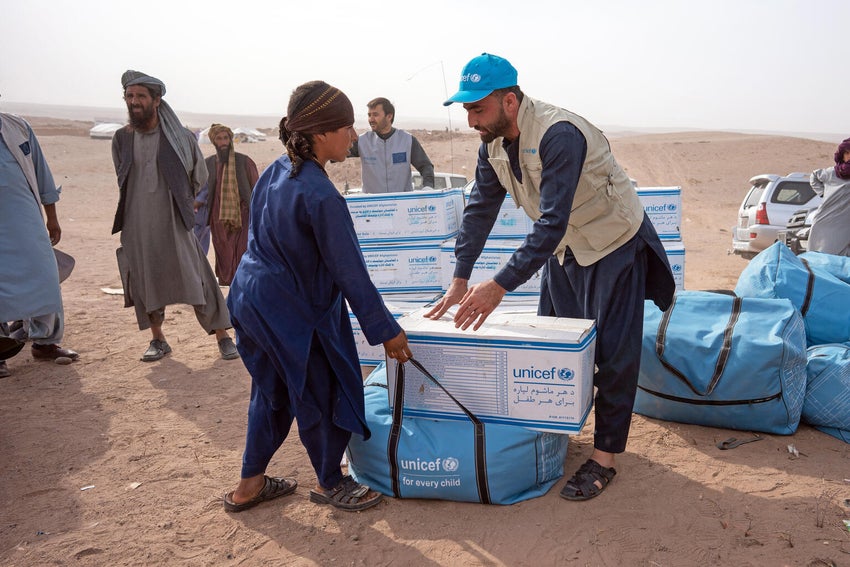
Guidance and support during emergencies
In certain situations, when resources are readily available to meet children’s needs during an emergency, we offer guidance and support to decision-makers on the ground. In others, we mobilise UNICEF staff and supplies, to work alongside governments and local and international grassroots organisations, to provide direct assistance to children and families who need it most.
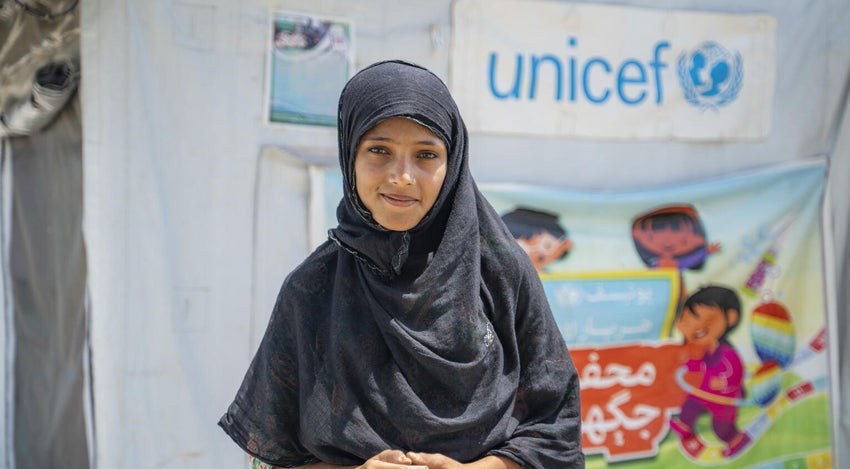
We uphold the rights of children
We aim to deliver critical support to children caught in crisis, as outlined in international humanitarian and human rights law, including the 1989 Convention on the Rights of the Child. This Convention, ratified by nearly every country, is the foundation of UNICEF’s work. In conflicts and wars, it complements the universal principles that guide our humanitarian operations and advocacy.
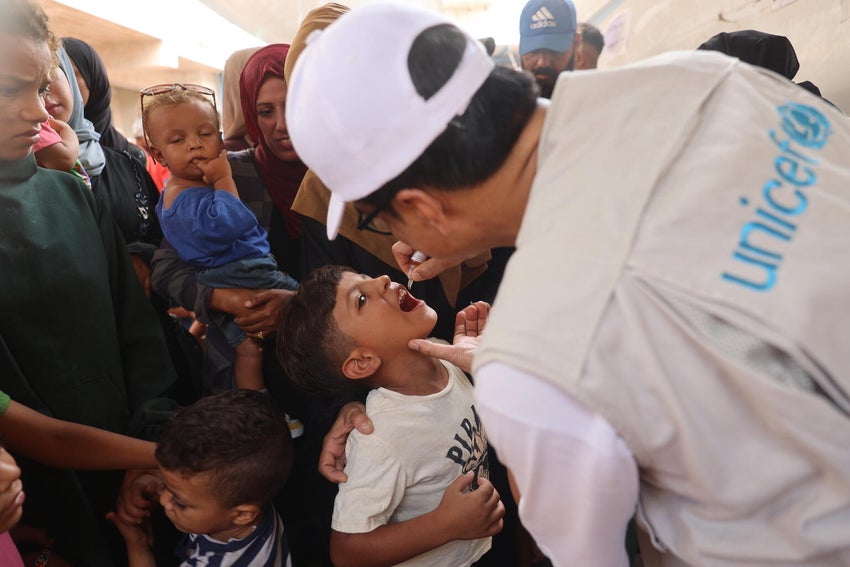
We operate impartially to reach children in need
UNICEF has been operating impartially and neutrally since 1946. Then, our mandate was to reach children on all sides of the war, regardless their country’s role. Today, that mission remains the same. Impartial by procedure, but we’re never neutral when it comes to supporting and speaking up for children in need.
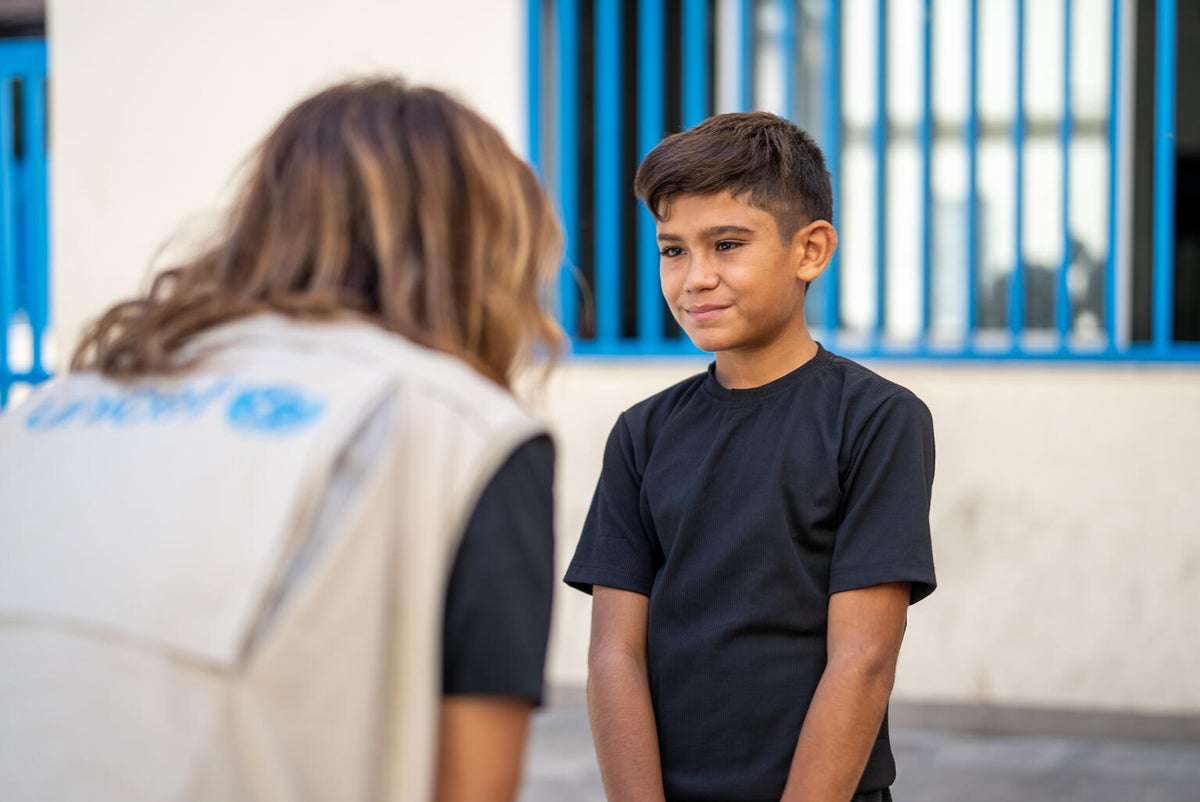
What are the universal humanitarian principles that guide UNICEF’s operations and advocacy?
As a 100 per cent donor funded organisation, we hold ourselves accountable to the principles of humanity, impartiality, neutrality and independence. We aim to uphold these universal values in everything we do and say.
Humanity
We believe human suffering must be addressed wherever it happens. Humanitarian action saves lives, protects health and ensures respect for everyone. UNICEF helps and protects every vulnerable child, treating each with dignity and respect.
Impartiality
We provide assistance based on need and without discrimination, whether it’s nationality, ethnicity, race, age, sex, language, disability, religious belief, class, sexual orientation, gender identity, political opinions or anything else.
Neutrality
We stay out of political, racial, religious or ideological controversies and we don’t take sides in conflict.
Independence
Our humanitarian work is independent of political, economic, military, security or other objectives.
These principles are critical for fulfilling our United Nations mandate. They guide our decisions and help frontline workers earn the trust of the communities we seek to serve. In dangerous situations, especially during conflict and war, the safety of our teams depends on the acceptance of both sides. We can’t reach children without this trust.
Our policies and advocacy follow these same principles. UNICEF is committed to promoting and protecting the rights of all children, guided by the Convention on the Rights of the Child and international humanitarian law. Our advocacy includes promoting adherence to international and regional legal norms, standards and principles.
UNICEF’s commitment to humanitarian principles has kept us operational in complex situations since we started in 1948. Today, we’re on the ground in over 190 countries. We’re neutral and impartial, but never indifferent when it comes to caring for children.
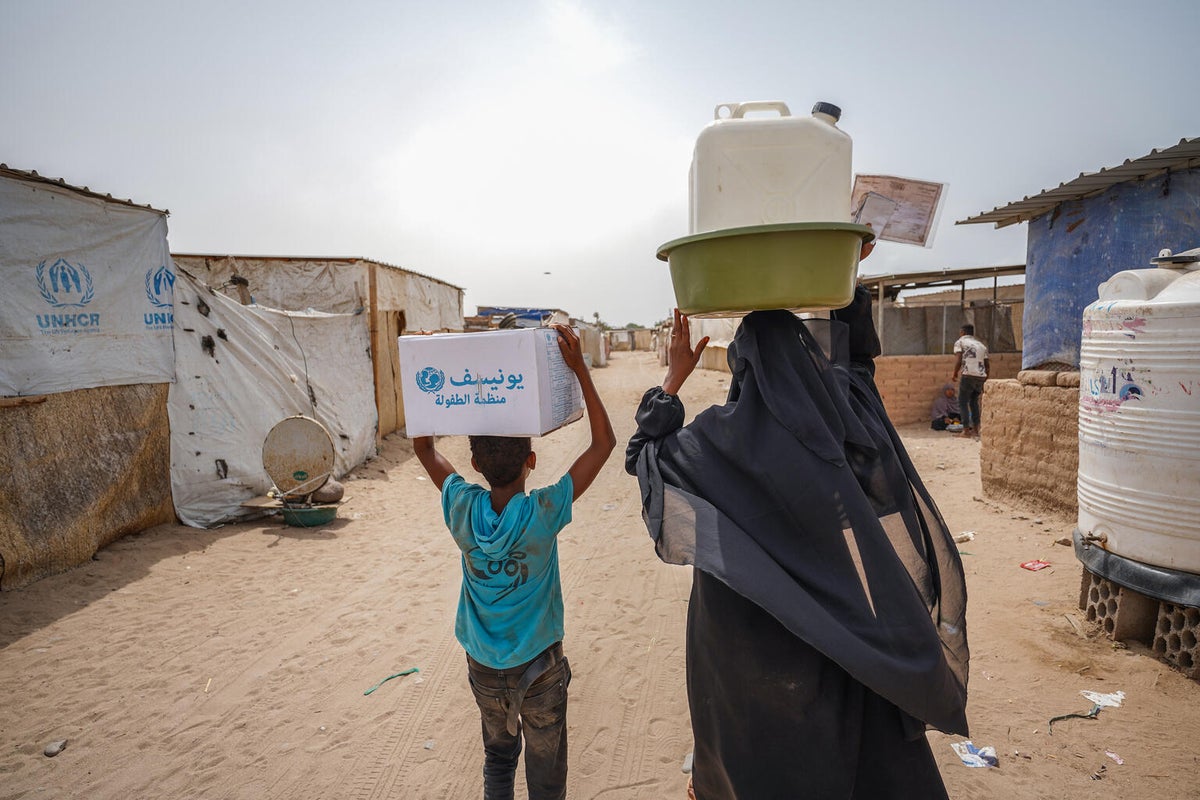
Why does UNICEF refer to “parties to conflict” without calling them by name?
UNICEF’s role in any conflict is to help protect children’s rights and ease their suffering. This means calling on those involved in fighting to abide by international law, in ways that best serve children caught in hostilities. It also means working to reach those children with lifesaving support, no matter who they are or where they live.
UNICEF must ensure humanitarian workers can reach children on all sides of the conflict while keeping security risks low. This requires open communication with everyone involved in the fighting.
In complex and dangerous situations, publicly criticising or appearing to take the side of any party can risk cutting UNICEF’s lines of communication with them. More urgently, it can endanger the safety of children and front-line workers. We prioritise the services our teams provide for children and their safety on the ground.
Any interaction with armed forces or groups, necessary to keep humanitarian operations going or to press them to comply with their responsibilities to protect children, follows humanitarian guidelines for civil-military coordination.
In line with our Core Commitments for Children, UNICEF also collects reports of grave violations against children in conflict zones. We do this in coordination with other UN agencies to push for an end to these violations against children, and to inform emergency programming. UNICEF doesn’t have the authority to investigate violations of international law or determine who is responsible.
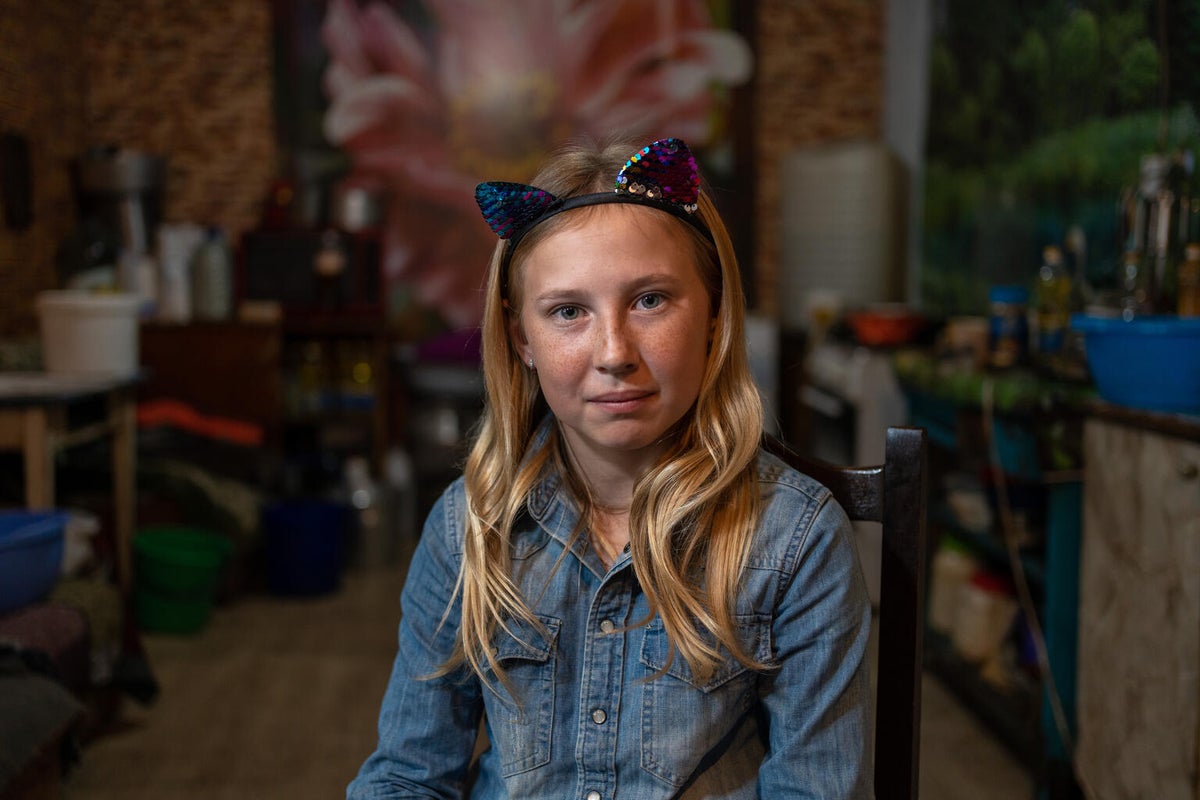
Does UNICEF’s commitment to neutrality and other humanitarian principles prevent it from speaking up against violations of children’s rights?
No. If we speak out publicly, we do so in line with humanitarian principles. Our aim is to focus the world’s attention not on the causes of conflict, but on the consequences for children. The only side we take in war is children’s.
UNICEF will continue to speak out against violations of children’s rights, including grave violations committed against children.
Children bear no responsibility for war. We persist in pressing world leaders on every occasion to abide by their obligations under international humanitarian and human rights law, which afford children special protections in any circumstance.
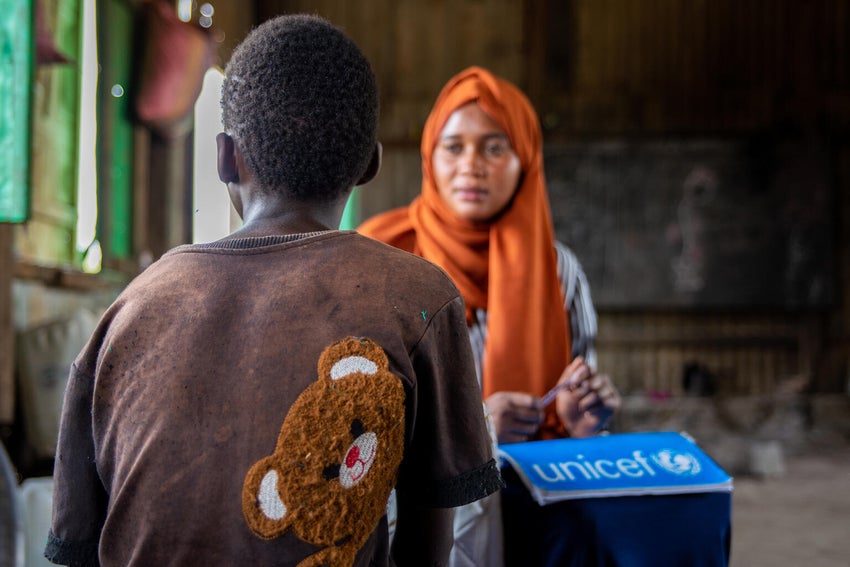
How does UNICEF decide which images of children to publish online?
Reporting on children living through war, conflict and violence can put them at more risk. When deciding if and how to share a child’s story or image, UNICEF always puts the child's safety, dignity, and best interests above all other considerations, including advocacy. Children in imminent danger need extra protection from possible retribution or exploitation.
Our guidelines for ethical reporting on, and representation of, children and young people help protect them from the unintended, harmful consequences of media attention. For child survivors of abuse, this includes the risk of being re-traumatised by sharing their story or stigmatised within their community.
All UNICEF staff have a duty to ensure their actions do not put children in danger. When any doubt exists over the potential for public communications to heighten a child’s risk of retribution, exploitation or harm, we will always err on the side of the child’s security.
How does UNICEF make sure lifesaving supplies reach children in need?
UNICEF’s primary focus is to ensure lifesaving supplies reach children in need.
With decades of experience delivering support and supplies in high-risk areas, we know that some relief items will inevitably be lost or damaged. That's why we take a "no regrets" approach in all emergencies, adjusting our operations to account for the highest cost of failure – extended suffering for children and loss of life.
To protect supplies, we use field monitoring by our staff and third-party contractors, real-time digital monitoring, high-frequency reporting from local partners, and community feedback mechanisms allowing families to contact us directly.
Active conflict can make these measures harder. Roads, warehouses, and telecommunication networks can get destroyed, making it harder to coordinate with partners. Humanitarian workers can be displaced, injured or killed. And network blackouts can make it difficult for families to tell us what they urgently need for their children – or to receive information on how to access it.
There can be many challenges to ensure lifesaving supplies are delivered, but there are many more reasons to persist. We'll continue to do everything we can to ensure our supplies reach children in need. No matter what.
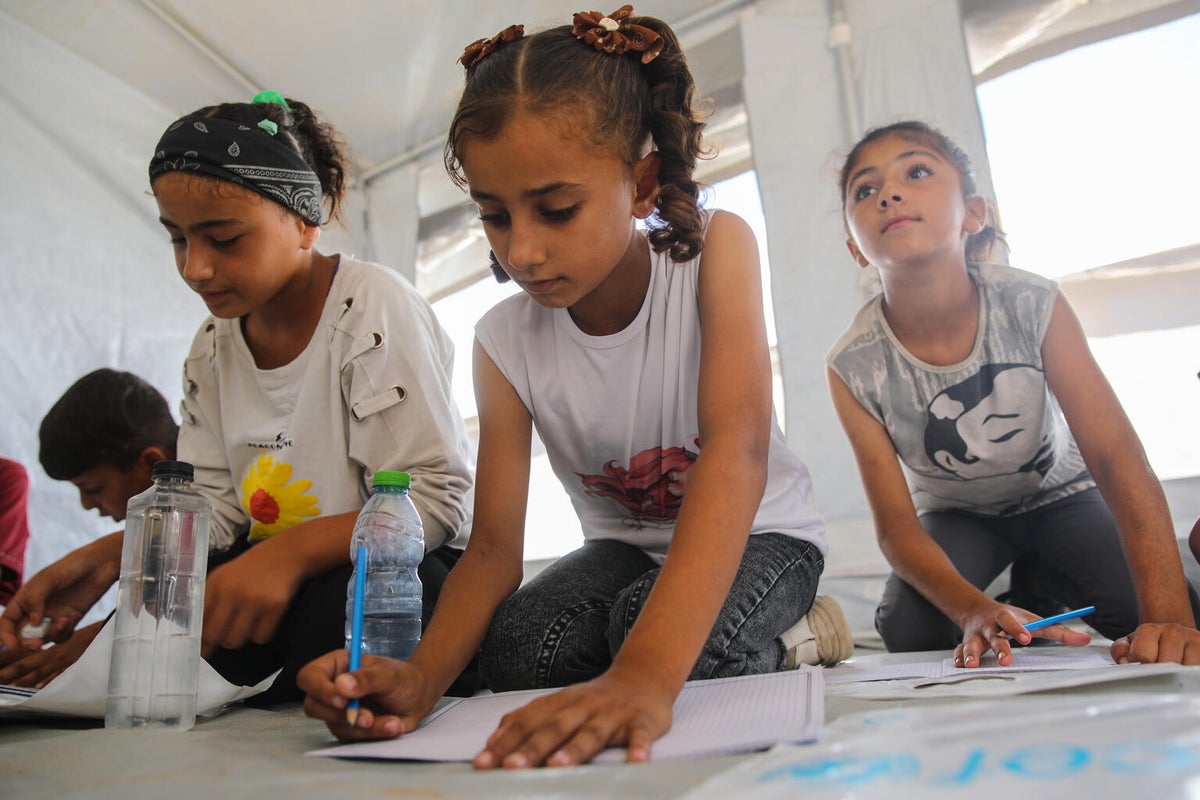
What is UNICEF’s humanitarian role within the wider United Nations system?
UNICEF serves as the United Nations' lead agency for protecting children's rights and delivering humanitarian assistance to children and their families. Operating under a direct mandate from the UN General Assembly, UNICEF supports children's during peacetime and emergencies.
The United Nations was founded in the aftermath of World War II to bolster international peace and security and promote fundamental human rights.
Around the world, UNICEF carries out emergency relief efforts, in coordination with United Nations partners and other humanitarian actors, to address children’s lifesaving needs and help alleviate suffering.
Closer to home, UNICEF Australia’s formal link with UNICEF is through a Co-operation Agreement, which recognises UNICEF Australia as UNICEF’s sole representative in Australia.
 a registered Australian charity and a registered non-government organisation in Australia, and we’re governed by our own Board of Directors. We’re 100 per cent donor funded, and we do not receive any monetary support from the United Nations.
UNICEF Australia’s functions are supporting UNICEF’s work in the region and internationally, as well as fundraising and raising awareness of child rights.
UNICEF Australia stands with the United Nations Secretary-General and our entire UN family in support of all efforts to end the conflict. On every side of violence, and in every way, as it’s children who suffer first and foremost.
Donate to children in emergencies
UNICEF is on the ground providing urgent assistance to affected children and families as they face some of the most devastating crises in places like Gaza, Ukraine, Afghanistan and Sudan. Please donate today to support our ongoing efforts.



